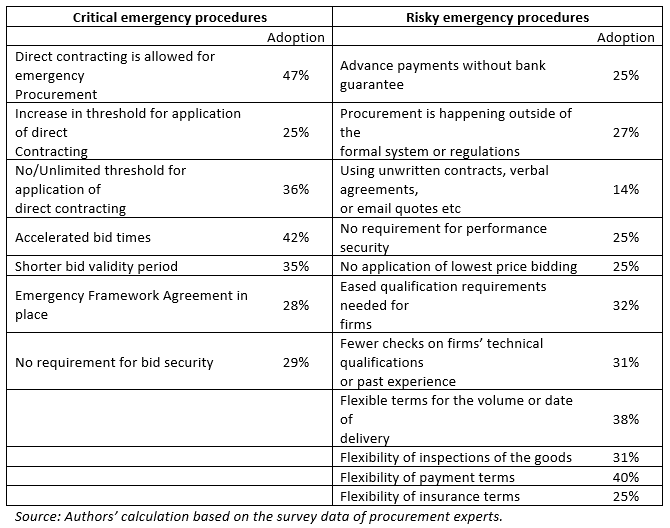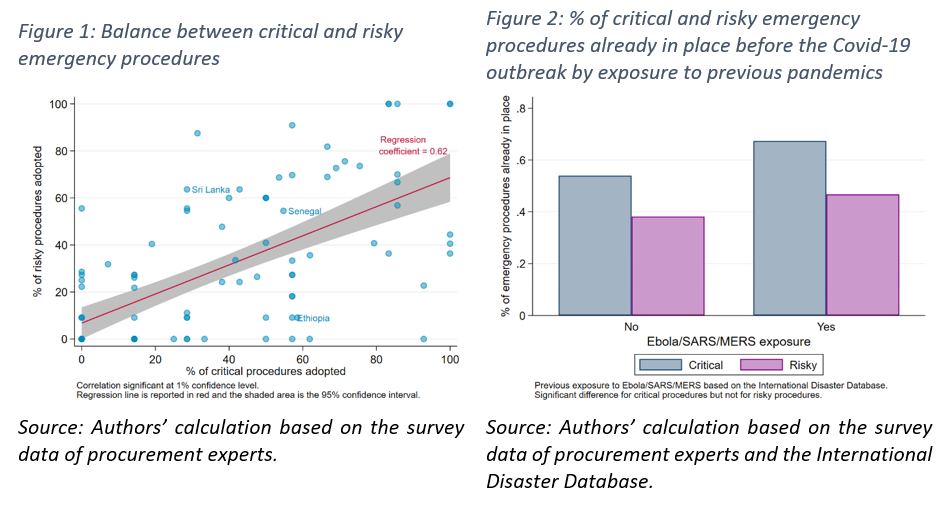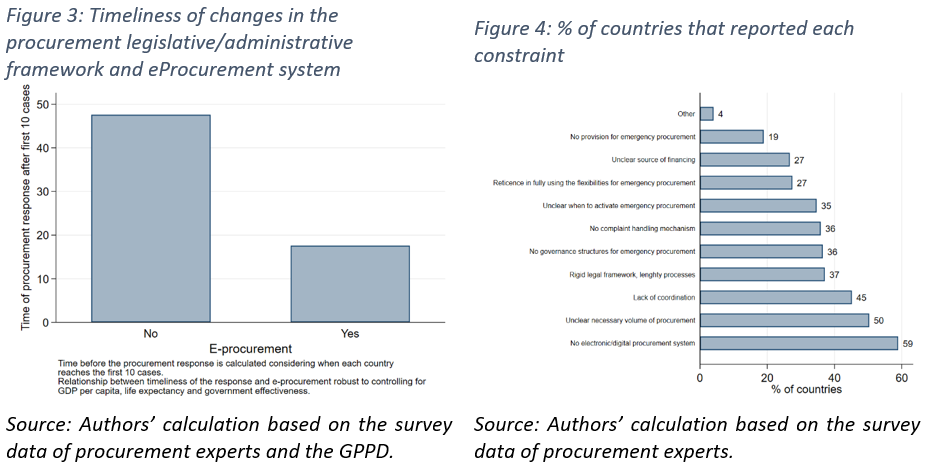Global survey highlights challenges and opportunities for public procurement during the Covid-19 pandemic

Illustration: Bibit Unggul / Shutterstock
The Covid-19 crisis has burdened public procurement with governments responding in a myriad of ways and with various degrees of success. In order to document these diverse experiences and challenges, the World Bank’s Procurement Global Unit and the Development Impact Evaluation (DIME) in the Research Group have conducted an international survey among procurement experts.
The study focuses mainly on three areas: (i) national public procurement systems’ ability to respond to critical emergencies as well as recently adopted procedures for Covid-19; (ii) the timeliness of responses; and (iii) the legal and administrative bottlenecks that impede effectiveness and efficiency.
The findings of this study will provide insights and inform the Bank’s advice to governments and procurement agencies on how to better assess and enhance the performance and resilience of national procurement systems during critical emergencies.
Initial Findings
The survey, which is still underway, was launched in late April. By mid-July, 136 responses from 103 countries were received.
Some initial findings on the challenges and reform opportunities for public procurement during the Covid-19 pandemic include:
Countries most affected by Covid-19 adopted a larger percentage of critical and risky procedures for emergency public procurement. Critical procedures are those supporting faster procurement and, if implemented correctly, would permit a better management of risks. Risky procedures introduce much greater risks in the process. There is also a group of countries with a tendency to prefer risky procedures over critical procedures (Figure 1). It would be important for all countries to focus on the most critical procedures for Covid-19 procurement and avoid the riskiest ones.


Countries with a well-developed legislative framework for emergency procurement were better prepared to face the Covid-19 pandemic , having to introduce fewer changes, amendments or new legislation. In the past, exposure to similar pandemics represented an opportunity to strengthen the readiness of public procurement systems, and indeed countries previously affected by Ebola, SARS or MERS had in place 14% more of the critical emergency procedures to face the Covid-19 crisis (Figure 2).
Countries with an existing eProcurement system had to introduce less drastic changes in order to adapt to the new circumstances due to the Covid-19 pandemic , and indeed were able to adjust their public procurement functions more promptly.
Lack of clarity on procurement needs is a significant bottleneck experienced by most surveyed countries, creating uncertainties for procuring entities trying to secure the necessary medical supplies and for the geographical distribution of these supplies (Figure 4).

A window of opportunity for further advancements in transparency and accountability of public procurement can be opened. Emergency procurement is often conducted with expedited modalities with fewer ex-ante oversight and reduced ex-ante transparency, such as direct contracting. This is motivated by the necessity of a prompt response to the emergency, but it also implies that ex-post reviews and public scrutiny are imperative.
Next Steps
As many countries are still heavily affected by the Covid-19 crisis, it is too early to draw conclusions on the best practices to conduct timely and efficient emergency procurement. The research team will continue collecting procurement transactions data for this and future studies on this area.
The team is eager to share the results of the survey in an open format and invites you to share your own thoughts in the comments. In the meantime, if you are a procurement expert, it is not too late to take and share the survey!
Editor's Note: The survey data was validated and complemented using the GPPD database, the contract details of World Bank Covid-19 related operations, the Covid-19 policy response database, the International disasters database and Covid-19 projections by IHME.
